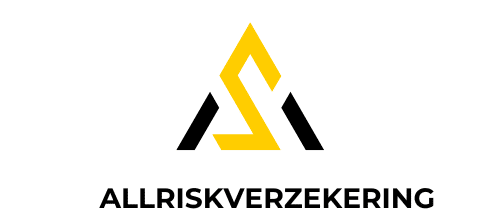The Non-Invasive Prenatal Testing (NIPT) landscape has seen significant advancement in recent years, transforming the way potential genetic disorders are screened during pregnancy. The introduction of new technologies and methodologies has increased the accuracy, speed, and safety of prenatal screening, offering expectant parents a reliable way to assess the health of their unborn child.
This article will delve into the cutting-edge breakthroughs in NIPT, focusing on how they have improved the detection of abnormal fetal DNA, the risks associated with conventional invasive procedures, and their impact on prenatal care. We’ll explore the latest research, drawing upon reputable sources such as Pubmed and Crossref, and discuss the implications of these advancements on the landscape of prenatal testing.
Also to read : Can Smart Fabric Enhance Athlete Performance Monitoring in Competitive Sports?
The Evolution of NIPT: A Shift to Cell-Free DNA (cfDNA) Testing
In the realm of prenatal testing, the move towards cfDNA testing has revolutionized the way genetic abnormalities are detected. Introduced in the last decade, cfDNA testing evaluates small fragments of DNA circulating in a pregnant woman’s blood to screen for chromosome conditions, such as trisomy syndromes.
Previously, prenatal testing for genetic disorders involved invasive procedures like amniocentesis or chorionic villus sampling (CVS). These methods, while accurate, posed certain risks, including miscarriage and infection. The shift to cfDNA testing has lessened these risks, making prenatal screening safer and more accessible for expectant mothers.
Also to read : What Is the Role of Advanced Robotics in Customized Mass Manufacturing?
Recent improvements in cfDNA testing have enhanced its accuracy and enabled earlier detection. Typically, cfDNA testing can be performed from 10 weeks of pregnancy, providing early insights into the fetus’s health. It can accurately detect Down syndrome (trisomy 21), Edwards syndrome (trisomy 18), and Patau syndrome (trisomy 13), among others, with a high positive predictive value.
The Role of Next-Generation Sequencing (NGS) in NIPT
Next-Generation Sequencing (NGS) is another significant advancement in the realm of NIPT. This technology allows for the rapid and high-throughput sequencing of DNA, thereby enabling the detection of minute amounts of fetal DNA present in the mother’s blood.
NGS has brought about a transformative change in prenatal testing. It enables us to not only screen for common trisomies but also identify other genetic abnormalities, including microdeletions and sex chromosomal aneuploidies. Furthermore, NGS has proven to be a valuable tool in detecting mosaicism, a condition where some cells have a different number of chromosomes than others, which traditional screening methods often miss.
The utilization of NGS in NIPT has had far-reaching implications for prenatal care, improving the accuracy and reliability of prenatal screening.
Harnessing the Power of Big Data and Artificial Intelligence in NIPT
The rise of big data and artificial intelligence (AI) has presented new possibilities for NIPT. With the capacity to process and analyze large volumes of data, AI algorithms can provide deeper insights into fetal health and improve the accuracy of genetic disorder prediction.
Through machine learning, AI can identify patterns and make predictions based on a vast array of data, including maternal age, ultrasound findings, and biochemical markers. This data-driven approach not only enhances the accuracy of NIPT but also provides a more personalized risk assessment for each pregnancy.
Additionally, AI-enabled NIPT can reduce the likelihood of false-positive results, a significant limitation of traditional screening methods. By minimizing unnecessary invasive procedures resulting from false positives, AI can further reduce the risk associated with prenatal testing.
The Future of NIPT: Liquid Biopsy and Beyond
Looking ahead, the future of NIPT lies in the development of even more advanced technologies. One such promising avenue is liquid biopsy, a non-invasive method that analyzes cfDNA in the mother’s blood to detect genetic abnormalities in the fetus.
Liquid biopsy has the potential to revolutionize prenatal testing by providing a comprehensive view of the fetal genome. It not only screens for common trisomies but can also detect a broader range of genetic conditions earlier in pregnancy.
Moreover, the development of more sensitive assays and improved sequencing technologies promises to enhance the accuracy and efficiency of NIPT, paving the way for more comprehensive and accessible prenatal care.
In conclusion, the technological breakthroughs in NIPT have transformed prenatal screening, making it safer, more accurate, and more informative. With the advent of advanced technologies like cfDNA testing, NGS, AI, and liquid biopsy, the future of prenatal care looks promising, offering expectant parents the assurance they need during this critical phase of life.
Enhanced Detection of Fetal Anomalies Using Advanced NIPT Technologies
Advancements in NIPT technology offer promising results for detecting an expanded range of chromosomal abnormalities. The adoption of techniques like cfDNA testing and NGS has rendered prenatal screening more sensitive and accurate.
The cfDNA testing, which relies on fragments of fetal DNA circulating in the pregnant woman’s blood, has been particularly impactful. This noninvasive prenatal testing is a remarkable achievement, offering a safer alternative to traditional invasive prenatal screening methods like amniocentesis or CVS that are associated with miscarriage and infection risks.
The cfDNA testing’s ability to screen for common trisomy syndromes, including Down syndrome (trisomy 21), Edwards syndrome (trisomy 18), and Patau syndrome (trisomy 13), is of immense value. It not only reduces the risk of false positives but also minimizes the need for invasive prenatal diagnosis, thus alleviating anxiety for expectant parents.
Next-Generation Sequencing (NGS) is another significant technological breakthrough. It has enhanced the detection of fetal aneuploidy and mosaicism, a condition characterized by a varying number of chromosomes in different cells. Furthermore, NGS has increased the detection rate of microdeletions and sex chromosomal aneuploidies significantly, contributing to more accurate prenatal testing.
The Future of NIPT: AI, Big Data and Liquid Biopsy
The future of NIPT is set to be shaped by the integration of AI and big data. These technologies hold immense potential to further improve the accuracy and efficiency of fetal abnormality detection.
AI algorithms, backed by machine learning, can effectively analyze vast volumes of data, including maternal age, ultrasound findings, and biochemical markers. This data-driven, predictive approach is revolutionizing prenatal screening. It not only enhances the accuracy of NIPT but also offers a tailored risk assessment for each pregnancy, thus providing high-risk pregnant women with more personalized care.
The advent of liquid biopsy also signifies a promising future for NIPT. This technique analyzes cfDNA in maternal plasma to detect genetic abnormalities in the fetus. Its capability to provide a comprehensive view of the fetal genome and detect a wider range of genetic conditions early in pregnancy marks a significant step forward in prenatal care.
Conclusion
The landscape of NIPT has seen substantial advancement with the introduction of new technologies like cfDNA testing, NGS, AI, and liquid biopsy. These breakthroughs have escalated the accuracy, safety, and efficiency of prenatal screening, making it more reliable for expectant parents. They have also minimized the need for invasive prenatal testing, reducing the associated risks and offering peace of mind to parents-to-be.
As technology continues to evolve, the future of NIPT looks promising, with the potential for even more comprehensive and accessible prenatal care. The integration of AI and big data, in particular, heralds a new era in prenatal screening. It not only enhances the accuracy of testing but also provides a more personalized approach to prenatal care. Ultimately, these advancements offer reassurance to parents during a critical life phase, ensuring that every child has the best start in life.
















